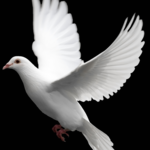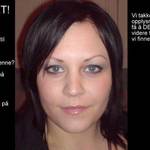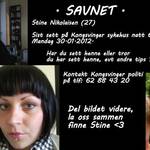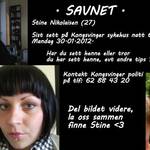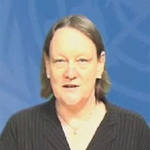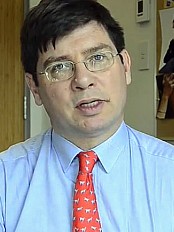Women human rights between Saudi and Norway!!!
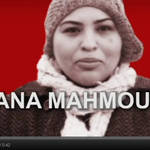 I was raised in the Middle East, for a middle class educated family; at the end of 2008 I moved to Norway with my family. I always think and compare, between the two regions. Europe vs. the Middle East!
I was raised in the Middle East, for a middle class educated family; at the end of 2008 I moved to Norway with my family. I always think and compare, between the two regions. Europe vs. the Middle East!
I always ask myself, what have changed in me and what didn’t? How the Norwegian society did influence my personality? Was it an upgrade or a downgrade step for me? How do I perceive things happening around?
I got to hand it to Norway, it made me a person who got the courage to share my personal stories publicly, not only with my close friends but also with strangers. Maybe because before that, my life was stable and kind of boring, with nothing worth telling, or probably because I feel free to say what I want “it doesn’t always mean someone will listen or act” but at least I’m given this opportunity!
Today I watched this video for Manal al-Sharif,[youtube http://www.youtube.com/watch?v=0PXXNK-3zQ4&w=560&h=315] speaking about her cause and how she is fighting for more rights for women in Saudi, it made me think, why I empathize with her? Why I feel she is speaking about me? I’m free to wear what I want. What she was saying feels so relevant, Why? For Heaven sake I’m living in NORWAY, not in Iran or Saudi. Why I’m feeling oppressed and weak? Why I’m wishing for the first time I have a male figure in my life to rescue me, my mother and my sister? I have never felt this way before coming to Norway, and always felt I can do it all, I don’t need a man to help me achieving something, I have always seen men as partners and not an extra capable person than myself!
I agree with Manal, living in Saudi under these circumstances is not easy task and diffidently not an option for me. I can’t live there, it’s almost impossible for me to be told what to do, especially something I don’t see the point behind doing it. Yes most likely you are going to call me spoiled and stubborn. But no, I have always had a choice, and always had the power to decide for myself since I was about 12 years old.
Manal neglected to clarify that life in other Arabic or Islamic countries are not the same as in Iran or Saudi, but this is not the point.
When I saw her I asked myself, is it the religion of the country that’ll define whither women are empowered or oppressed? If Yes, I’m not living in a religion oriented country, plus freedom of religion is given to all in Norway, so this is not the main reason!
OR
Is it just the feeling someone has, that they are enjoying a certain amount of power to do and say what they wish, knowing that no one will stop them, especially when it comes to the weakest in the society who have few advocates?
Of course excuses like religions, political agendas or laws can always be used to justify these actions against women, but If I could speak to Manal I would tell her she is not the only one who is feeling oppressed. I have never felt so helpless in my whole life until I was not allowed to do things I like and enjoy them anymore, Why?because I was considered a second class human in the Norwegian society or this is the way government portrait us!
Speaking of driving I have always been able and allowed to drive since I was 20 years old, I bought my own brand new car when I was 22, but still I can’t do so in Saudi, oh I mean in Norway because I lack the driving permit and in order to get one, I need a valid ID, which is the main reason why I have come to this country.
mmm, maybe I should share a little bit about why I came here, and why I have left my previous life. I came to Norway to seek a homeland…I’m a Palestinian, who was born without a state that I can reside in legally, so yes, I came to seek a life, not a well-financed life, and not a fancy luxurious life, but only a stable one, without fearing being expelled outside for not keeping a job, or not having a valid passport.
I’m not allowed to study because I’m not a Norwegian, I’m not allowed to go out and shop as much as I wish for because I have very limited resources and the law doesn’t allow me to expand them and work to make my own living, comparing to others I’m at the bottom of the ladder, Just like Manal and her generation, suffering from discrimination!
Moral of the story, it doesn’t matter which part of the world you live in, the question should read like this: Does the government in your country seek empowering women in general despite all elements or they are only seeking fake international status? For example: If the Norwegian government genuinely believe in empowering women and not cherry picking whom should be protected and who shouldn’t, Norway in 2012 should have Zero undocumented, paperless women and not about 18,000 ones with many women and children among them-It’s just my opinion!
Manal cannot do what she wishes to do because she is not a male, and I can’t do what I wish to do because I’m not Norwegian!
She is being bullied because of her gender and I’m being bullied because of my weakness and my not being able to defend myself!
Sorry Manal, I know the Saudi laws are not fair to women but I can also make the same statement about the Norwegian asylum laws, I still feel you are luckier than me because you are still able to travel around the world and tell audience what you are suffering from. While all what I have got is my little computer screen, and a glimpse of hope that one day women around the globe will be treated with respect and enjoy more rights than they do today!
Worldwide women’s rights need to be re-evaluated, in my opinion!
Although I would like to start with countries that are so proud of their achievements in this field…The ones who consider themselves the crème de la crème when it comes to protecting women human rights 😉
Barnemishandling satt i system – Hva gjør vi?

Barnemishandling satt i system – Nye meninger
Norge er i dag i en situasjon hvor barn mishandles, traumatiseres og skades som en følge av en streng linje i asylpolitikken.
Norge er i dag i en situasjon hvor barn mishandles, traumatiseres og skades som en følge av en streng linje i asylpolitikken. Dette skjer med vitende og vilje. Det foreligger nemlig forskning på og erfaring med asylbarns psykiske vansker. Professor Berit Berg med flere skrev allerede i 2005 en rapport som viste at 6 av 10 barn på asylmottak har psykiske vansker.
Skal vi fortelle Barnevernet hvor bekymret vi er?
Last ned bekymringsmelding til Barnevernet her.
La oss starte et folkeopprør
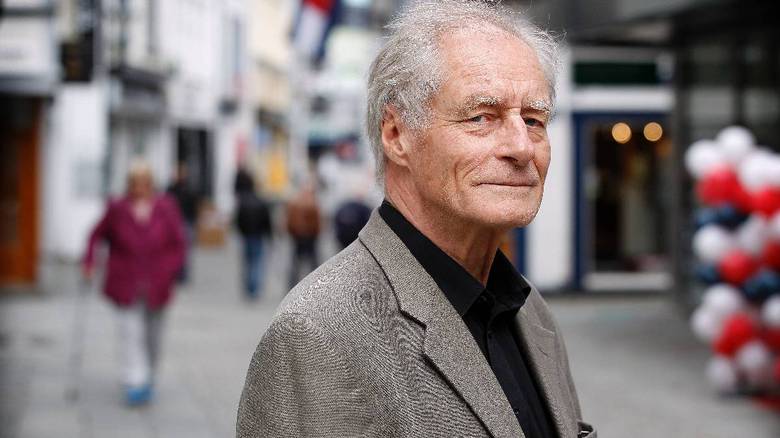
NÅ KAN VI IKKE SITTE STILLE Å SE PÅ AT BARNA VÅRE SENDES UT AV LANDET TIL HÅPLØSHET OG FORTVILELSE!
Et folkeopprør startet av Knud Andreas Sømme er noe vi alle må ta tak i.
Føler du at du ikke får gjort noe er dette en enkel og effektiv aksjon!
HIV DERE PÅ!
NORWAY HAS BECOME A COUNTRY THAT WE DON’T LIKE TO BE COMPARED WITH!
NORWAY HAS BECOME A COUNTRY THAT WE DON’T LIKE TO BE COMPARED WITH!
Our Norwegian society begins to have frightening similarities to countries we do not like being compared to. First, people disappear. Police come and pick them up, often at night, when nobody sees it. Suddenly they are gone. They live in reception centers and are often isolated from normal society. they do not get to say goodbye to their friends, no idea where they are gone. and the government that sent them out of the country, consistently refuses to find out what is happening to them after they are returned.
In spite of large protests all over Norway, our stubborn Prime Minister, Jens Stoltenberg, he follows his line of inhumanity:
One of many examples:
Norway: Bergen politicians protest government asylum policy

“Some 450 paperless minors are living in Norway state-run centres. The recent Norway-Ethiopia repatriation agreement, which has been broadly censured by members of the tri-partite coalition, has now closed for voluntary returns.”
—————————————-
Enough is enough, Jens!
WE WILL NOT TOLERATE THIS ANYMORE! LISTEN TO YOUR PEOPLE AND VOICES IN YOUR PARTY. TO TURN AROUND IS NOT A SHAME! IT’S A PROOF OF HUMAN CAPABILITIES.
Mythbuster!
Myten om ikke-vestlige voldtektsmenn sprekker
Den rette konsekvensen for dette burde være at ![]() o.a kom med et dementi i KRIGSTYPER! For å forsøke å slette folks tro på slike myter! MEN NEIDA! Plant myten og la den bli der!
o.a kom med et dementi i KRIGSTYPER! For å forsøke å slette folks tro på slike myter! MEN NEIDA! Plant myten og la den bli der!
Fra artikkelen:
“Høsten 2011 ble Oslo rammet av en uhyggelig voldtektsbølge, såkalte overfallsvoldtekter. En politirapport tilbakeviste myten om at alle gjerningsmennene var “ikke-vestlige”. Likevel spredte myten seg om mørke voldtektsmenn. Årsaken var selektiv mediedekning og kronglete ordlegging fra en av politiets egne ansatte.”
Ali Ahmed Akar fra Palestinerleiren ble i dag arrestert av PU
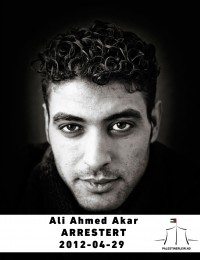
Ali frigitt fra Trandum dag og har fått meldeplikt hos politiet. Han er fortsatt i fare for å bli deportert, men slipper i alle fall Trandum inntil videre.
Ny arrestasjon
Ali Ahmed Akar fra Palestinerleiren ble i dag arrestert av Politiets utlendingsenhet. Ali har vokst opp i en flyktningeleir i Libanon, og det fryktes retur til en leir som preges av voldelige konflikter og stor elendighet. Palestinere i Libanon har ikke fulle rettigheter og behandles som annenrangs-borger.
Les mer
Letingen er over!
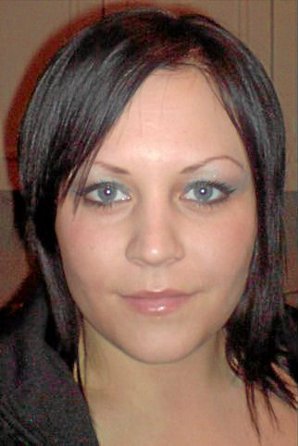
Stine funnet død i Glomma
RIP STINE!
Takk til alle som har hjulpet til med å lete
Føler at jeg ble litt kjent med Stine,
gjennom mitt lille bidrag til leteaksjonen.
Kjenner meg tom og trist.
Mine tanker går til pårørende og venner
og alle som var glad i henne
———————————————————
Published on Apr 20, 2012 by gryhelene2
Stine Nikolaisen 1984 – 2012.
Lenge levde vi i håpet, men du tok veien med englene.
En dag ses vi igjen lille engel, i mellomtiden bærer vi alle med deg i hjertene våres.
Kjære Stine, hvil i fred.
Musikk: Sarah McLachlan – Angel
————————————————————————–
Historikk:
UN special rap. on human rights for migrants are concerned about the return agreement with Ethiopia
THE LETTER:
His Excellency
Mr. Steffen Kongstad
Ambassador Extraordinary and Plenipotentiary
Permanent Representative of Norway
Permanent Mission of Norway to the United Nations Office at Geneva
From: Jane Connors
Special Procedures Branch
OHCHR
Date: 23 March 2012
NATIONS UNIES
HAUT COMMISSARIAT DES NATIONS UNIES AUX DROITS DE L’HOMME
PROCEDURES SPECIALES DU CONSEIL DES DROITS DE L’HOMME UNITED NATIONS
OFFICE OF THE UNITED NATIONS HIGH COMMISSIONER FOR HUMAN RIGHTS
SPECIAL PROCEDURES OF THE HUMAN RIGHTS COUNCIL
Mandate ,of the Special Rapporteur on the human rights of migrants.
Téléfax: (41-22)917 9006
Télégrammes: UNATIONS, GENEVE
Téléx: 41 29 42
Téléphone: (41-22) 917 9359
Internet www.ohchr.org
E-mail: urgent-action@ohchr.org
REFERENCE: AL, G/SO 214 (106-10)
NOR 1/2012
Address; Palais des Nations CH-1211 GENEVE 10
Excellency.
His Excellency
Mr. Steffen Kongstad
Ambassador Extraordinary and Plenipotentiary
Permanent Representative of Norway
to the United Nations Office at Geneva
Avenue de Budé 35 bis
Case postale 274
1211 Geneva 19
I have the honour to address you in my capacity as Special Rapporteur on the’ human rights of migrants pursuant to General Assembly resolution 60/251 and to Human Rights Council resolution 17/12.
In this connection, I would like to bring to the attention of your Excellency’s Government information I have received regarding the repatriation agreement between Norway and Ethiopia. I will also be sending a similar letter to the Government of Ethiopia.
According to the information received:
A Memorandum of Understanding (MOU) between the governments of Norway and Ethiopia concerning assisted return of Ethiopian nationals residing in Norway was signed on 26 January 2012. Ethiopian nationals whose request for a refugee status or residence permit has been rejected, and those with pending application for asylum who decide of their own free will to return to Ethiopia are being offered’ an opportunity to return voluntarily to Ethiopia with support from the , Norwegian authorities.
The MOU provides that Norwegian authorities commit themselves to sharing with the Ethiopian authorities “as much information as possible with regard to the returnees” (article 3.4). It is alleged that this could put them at risk when they are returned to Ethiopia. Furthermore, the MOU does not provide for guarantees that the returnees will not be subjected to harassment, threats, persecution, discrimination or criminal investigations upon their return to Ethiopia. The MOU (annex 2) provides that the Norwegian authorities shall submit a return application (for the persons to be returned) to the Ethiopian Ministry of Foreign Affairs and to the National Intelligence and Security Services/Immigration.
The MOU (annex 1) further provides that the Ethiopian Administration for Refugee and Returnee Affairs (ARRA) will be responsible for the implementation of the return and reintegration programme in Ethiopia. It is alleged that ARRA does not have any experience relating to reintegration of individuals. According to the MOU, ARRA will receive a sum of money per returned person (NOK 26 000 per person plus administrative costs).
-Reportedly, repatriation agreements Norway has entered into with other countries in the past have provided that personal information concerning the content of asylum application should not be disclosed, and that the receiving country undertakes to protect the returnees against harassment, threats, persecution, discrimination and criminal prosecution. Furthermore, in the past, reintegration programmes have been managed by IOM or UNHCR.
Allegedly those who do not return voluntarily will be returned by force, starting on 15 March 2012. This may affect up to 400 persons, many of whom have been living in Norway for many years, established families in Norway and worked there legally until January 2011, when their work permits were withdrawn. Reportedly, persons who do not return voluntarily and who are returned by force will not receive reintegration support.
It is alleged that the freedoms of opinion and expression and peaceful assembly and association are not guaranteed in Ethiopia. Many of the rejected asylum seekers residing in Norway claim to have been political activists in Ethiopia, and fear that their lives could be in danger if they are returned to Ethiopia. It is further alleged that the deportations may result in rights abuses such as torture or ill-treatment.
Children who were born and raised in Norway, and who have never even been to Ethiopia will reportedly also be subjected to forced return. Reportedly, primary education is not free or compulsory in Ethiopia, which could lead to a regression in these children’s enjoyment of their right to education. Furthermore, 46 children who are either Norwegian citizens or have a permanent residence in Norway and who will remain there, will be separated from either their mother or father, whose asylum application has been rejected, and who will be subjected to forced return.
Concern is expressed at the lack of safeguards in place for the return and reintegration process- Concern is also expressed for the physical and mental integrity of persons who have been politically active with the Ethiopian opposition, should they be forcibly returned to Ethiopia. Concern isfurther expressed that forced return may not be in the best interests of the children concerned.
While I do not wish to prejudge the accuracy of these allegations, I would like to remind your Excellency’s Government that the enjoyment of the rights guaranteed in the International Covenant on Civil and Political Rights (ICCPR), ratified by Norway on 13 September 1972, is not limited to citizens of States parties but “must also be available to all individuals, regardless of nationality or statelessness, such as asylum seekers, refugees, migrant workers and other persons, who may find themselves in the territory or subject to the jurisdiction of the State Party” (CCPR/C/21/Rev.l/Add. 13 (2004), para. 10).
Furthermore, I would like to stress that your Excellency’s Government has the obligation to protect the right to physical and mental integrity of all persons within its territory or subject to its jurisdiction. Article 7 of the ICCPR provides that “No one shall be subjected to torture or to cruel, inhuman or degrading treatment or punishment. I would also like to recall article 3 of the Convention Against Torture and other Cruel, Inhuman or Degrading Treatment or Punishment, ratified by Norway on 9 July 1986, according to which no State Party shall expel, return (“refouler”) or extradite a person to another State where there are substantial grounds for believing that he would be in danger of being subjected to torture. For the purpose of determining whether there are such grounds, the competent authorities shall take into account all relevant considerations including, where applicable, the existence in the State concerned of a consistent pattern of gross, flagrant or mass violations of human rights. In this respect, I would like to refer to the Committee against Torture, which in 2010 was “deeply concerned about numerous, ongoing and consistent allegations concerning the routine use of torture by the police, prison officers and other members of the security forces, as well as the military, in particular against political dissidents and opposition party members, […]” in Ethiopia (CAT/C/ETH/CO/1, para 10.
I would also like to draw your attention to article 33 of the 1951 Convention on the Status of Refugees and its protocol, ratified by Norway on 23 March 1953 and 28 November 1967 respectively, which stipulate that no Contracting State shall expel or return (“refouler”) a refugee in any manner whatsoever to the frontiers of territories where his life or freedom would be threatened on. account of his race, religion, nationality, membership of a particular social group or political opinion.
While noting that your Excellency’s Government is currently working on a white paper on asylum-seeking children (Stortingsmelding om barn på flukt), it is of particular concern that the MOU does not seem to take into account the particular protection measures that should be put in place for children. In this regard, allow me to remind your Excellency’s Government of article 3 of the Convention on the Rights of the Child, ratified by Norway on 8 January 1991, which provides that in all actions concerning children, whether undertaken by public or private social welfare institutions, courts of law, administrative authorities or legislative bodies, the best interests of the child shall be a primary consideration. In this respect I would like to refer to the concern expressed by the Committee on the Rights of the Child in 2010, that in Norway, “the principle of primary consideration of the best interests of the child is not yet applied in all areas affecting children, such as […] immigration cases” (CRC/C/NOR/CO/4, para 22). I would also like to recall article 2(2) of the Convention which provides that all appropriate measures shall be taken “to ensure that the child is protected against all forms of discrimination or punishment on the basis of the status, activities, expressed opinions, or beliefs of the child’s parents, legal guardians, or family members”.
In the event that your investigations -support or suggest the above allegations to be correct, I urge your Excellency’s Government to take all necessary measures to guarantee that the rights and freedoms of Ethiopian nationals at risk of forced return are respected.
As it is my responsibility, according to the mandate entrusted to me by the Human Rights Council, to clarify all information brought to my attention, I would greatly appreciate additional details from your Excellency’s Government concerning the above MOU and its implementation plan. I would in particular appreciate to receive information on the following points:
1. Are the facts alleged in the above summary of the case accurate?
2. How will your Excellency’s Government monitor how ARRA spends the money it receives for the implementation of the return and reintegration programme?
3. What is the role of the National Intelligence and Security Services in the return and reintegration process?
4. How will your Excellency’s Government ensure that the authorities in Ethiopia comply with the absolute prohibition of torture vis-a-vis the returnees?
5. What measures has your Excellency’s Government taken or does it intend to take to ensure an individual assessment of all Ethiopian nationals subjected to forced return; those who may be in need of international refugee protection or who are in need of human rights protection for other reasons?
6. What measures has your Excellency’s Government taken or does it intend to take to ensure an evaluation of the best interests of the child in relation to each Ethiopian child (any person under the age of 18 years) who may be subjected to forced return?
7. Please provide information on the status of the negotiations relating to other repatriation agreements between your Excellency’s Government and other countries, please indicate the contents of these agreements, and please send me a copy of the draft texts of the agreements, if available.
I would greatly appreciate receiving the above information from your Excellency’s Government within 60 days. Your Excellency’s Government’s response will be made available in a report to the Human Rights Council.
I remain at your disposal for any further clarification you may require and hope to . be able to continue this constructive dialogue with you and your Excellency’s Government. Please note that I can be contacted through the Office of the High Commissioner for Human Rights (Ms. Christel Mobech at cmobech@ohchr.org, and Ms. Federica Donati at fdonati@ohchr.org, tel: + 41 22 917 9995 / + 41 22 917 9496; or any of them at: migrant@ohchr.org).
Please accept, Excellency, the assurances of my highest consideration.
Francois Crepeau
Special Rapporteur on the human rights of migrants
What does Norway look like for a paperless person?

Mentally Tired, Emotionally drained, sick of life, mentally tortured…These are common phrases that became part of my daily life, the day I’m not saying them loud, I’m thinking them, or I can see them written silently on my mother and sister faces. When I first arrived in Norway it was the 23rd of December 2008, by the time we were allowed to be placed in an asylum reception and had some rest, the people in Tanum were making gløgg and giving away julekake, they were in a good mood and everyone were excited to tell us what jul means to Norwegians. I thought the rest of our days will be like this, especially that the asylum reception we were placed at afterwards used to be a hotel on top of a mountain that is close to a ski center.
Then life started, we were transferred to an isolated village in the southern Norway, which has only 1200 living souls according to Wikipedia, mostly are older and they like to keep it to themselves. Which is nothing close to what I was used to back in the United Arab Emirates where I always lived in a city and always been able to have a busy social life.
We have accepted our new reality, after all, we know it is not a choice that we can make and the Norwegians in the asylum reception were so friendly and wanted to know more about our culture, our food, and us. Walls started to grow taller around me in the asylum reception, especially when I was offered a job in an international NGO that is based in Oslo and my request for a work permit was rejected.
By then 22 months almost passed by and we didn’t get any answer about our asylum application, it’s not easy to feel that our whole life is on hold because we are lacking papers, which is the main reason why we came to Norway to seek protection from this situation. Then the first rejection came from UDI, asking us to appeal without defining a destination that we can go back to. UNE answered us also with a negative answer, asking us to go back to the United Arab Emirates.
I saw cases in the asylum reception where people got rejected the first time and then they reverted their rejection into acceptance the second time, but when we were rejected from UNE I knew the road was not going to be any easier and I started to lose hope, I’m not allowed to work, I’m not allowed to study since I can’t open a bank account and deposit the money required for foreign students.
I knew my life have stopped right there, someone had pushed the pause button and forget to start my life again, left the room, switched off the lights, left us in the dark in one bedroom with small kitchenette and a bathroom and very little amount of money every two weeks to stock our fridge with, without knowing what tomorrow is hiding for us.
Life became a collection of insomnia, nightmares and strong negative feelings toward everything, until the Palestinians decided to sleep in the streets to show the government what a great mistake they are doing by treating refugees like this, especially us Palestinians who have been refugees for generations and we feel it’s time for us to rest. I am grateful, because through them I was able to meet many brave, proactive Norwegians who are refusing their government practices against refugees and against undocumented and who want to make a real difference. Every day I meet a new face I know our number is growing bigger and we are able to convey our message to even more people who are in most cases were not reacting because they were not aware of the situation and the reality of us the undocumented.
The above is part of my speech, during a great project called atelier populaire, this project is taking place in Oslo these days and it’ll continue until the 27th of April 2012, I advise everyone to pay them a visit to get more information about the inhumane asylum policies in Norway and how can it be changed.
For more information about atelier populaire please visit the following link,
To see my speech on youtube, please follow this link,





